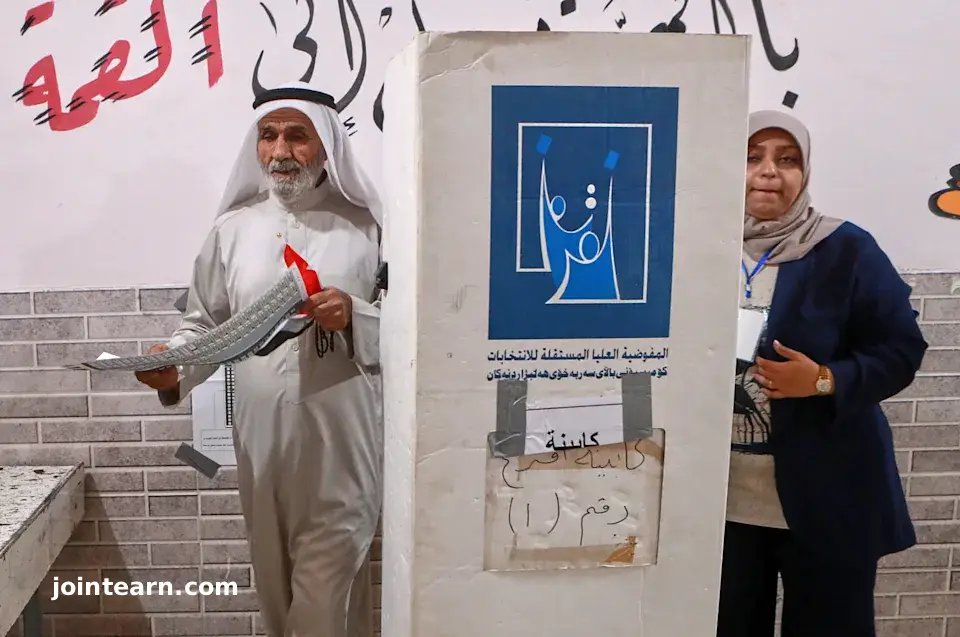
BAGHDAD, Iraq (AP) — Iraqis went to the polls on Tuesday in a parliamentary election marked by heightened security, political tension, and a significant boycott by the influential Sadrist Movement. The vote comes amid a complex regional backdrop, ongoing domestic unrest, and growing pressure from the United States to curb the influence of Iran-aligned armed factions within Iraq.
Voting Process and Security Measures
A total of 8,703 polling stations were opened nationwide. Early voting on Sunday allowed members of the security forces and displaced residents living in camps to cast their ballots. In Baghdad and other major cities, turnout in the first hours of polling was sparse, reflecting both the Sadrist boycott and general voter apathy.
Prime Minister Mohammed Shia al-Sudani, who is seeking a second term, arrived at a polling station in the capital with his mother to vote. He emphasized that the election “asserts the principle of peaceful transfer of power” and demonstrates the Iraqi people’s commitment to democratic practices.
Impact of Sadrist Movement Boycott
The Sadrist Movement, led by Muqtada al-Sadr, boycotted the elections, following years of political conflict and a withdrawal from government negotiations after the 2021 elections. Sadr City, the movement’s stronghold, exhibited tighter security, shuttered shops, and banners proclaiming “My people in Sadr City are boycotting.”
Polling stations in these areas reported extremely low voter turnout. One station serving 3,300 eligible voters recorded fewer than 60 ballots cast in the early morning hours. Citizens who chose to vote expressed cautious optimism that new elected officials might improve living conditions, but many acknowledged the boycott’s impact on participation.
Violence and Tensions in Northern Iraq
In Kirkuk, a city with a mixed population of Sunnis, Shia, Kurds, and Turkmen, overnight clashes between rival groups resulted in the deaths of two police officers and injuries to two civilians. Authorities reported 14 arrests. The city has been a site of territorial disputes and previous violence, including protests in 2023.
Despite the violence, voting proceeded with calm once polling stations opened, although some voters expressed apathy toward the electoral process. Residents noted that elections often change little beyond the faces of parliamentarians, reflecting broader frustration with political stagnation.
Legal Challenges and Election Integrity Concerns
Ahead of the elections, authorities launched crackdowns on electoral fraud. 46 people were arrested for illegal trading of voter cards, and nearly 1,841 voter cards were seized. The Iraq Supreme Judicial Council also challenged the election date, stating that setting the vote for November 11 was unconstitutional, as it was originally scheduled for November 24.
Al-Sudani’s government faces the dual challenge of managing both domestic political instability and international scrutiny, particularly from the United States, regarding the influence of Iran-aligned militias and the need for reform in Iraq’s electoral processes.
Looking Ahead
Initial results from the elections are expected Wednesday, and any legal challenges could delay final confirmation of winners. Analysts warn that the combination of a high-profile political boycott, low voter turnout, and ongoing security threats may complicate government formation and political stability in Iraq in the coming months.


Leave a Reply